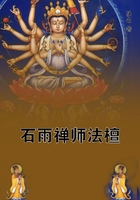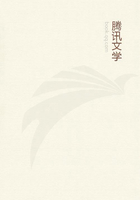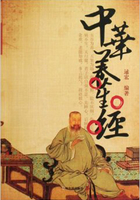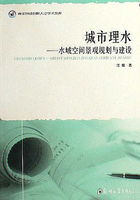"Ils s'arretent aux premieres notions qu'ils en ont," says Pere Hierome Lalemant. "Nothing," says Schoolcraft, "is too capacious (sic) for Indian belief." The replies to his questions he receives from tradition or (when a new problem arises)evolves an answer for himself in the shape of STORIES. Just as Socrates, in the Platonic dialogues, recalls or invents a myth in the despair of reason, so the savage has a story for answer to almost every question that he can ask himself. These stories are in a sense scientific, because they attempt a solution of the riddles of the world. They are in a sense religious, because there is usually a supernatural power, a deus ex machina, of some sort to cut the knot of the problem. Such stories, then, are the science, and to a certain extent the religious tradition, of savages.
Relations de la Nouvelle France, 1648, p. 70.
Algic Researches, i. 41.
"The Indians (Algonkins) conveyed instruction--moral, mechanical and religious--through traditionary fictions and tales."--Schoolcraft, Algic Researches, i. 12.
Now these tales are necessarily cast in the mould of the savage ideas of which a sketch has been given. The changes of the heavenly bodies, the processes of day and night, the existence of the stars, the invention of the arts, the origin of the world (as far as known to the savage), of the tribe, of the various animals and plants, the origin of death itself, the origin of the perplexing traditional tribal customs, are all accounted for in stories. At the same time, an actual divine Maker is sometimes postulated. The stories, again, are fashioned in accordance with the beliefs already named: the belief in human connection with and kinship with beasts and plants; the belief in magic; the belief in the perpetual possibility of metamorphosis or "shape shifting"; the belief in the permanence and power of the ghosts of the dead; the belief in the personal and animated character of all the things in the world, and so forth.
No more need be said to explain the wild and (as it seems to us moderns) the irrational character of savage myth. It is a jungle of foolish fancies, a walpurgis nacht of gods and beasts and men and stars and ghosts, all moving madly on a level of common personality and animation, and all changing shapes at random, as partners are changed in some fantastic witches' revel. Such is savage mythology, and how could it be otherwise when we consider the elements of thought and belief out of which it is mainly composed? We shall see that part of the mythology of the Greeks or the Aryans of India is but a similar walpurgis nacht, in which an incestuous or amorous god may become a beast, and the object of his pursuit, once a woman, may also become a beast, and then shift shapes to a tree or a bird or a star. But in the civilised races the genius of the people tends to suppress, exclude and refine away the wild element, which, however, is never wholly eliminated. The Erinyes soon stop the mouth of the horse of Achilles when he begins, like the horse in Grimm's Goose Girl, to hold a sustained conversation. But the ancient, cruel, and grotesque savage element, nearly overcome by Homer and greatly reduced by the Vedic poets, breaks out again in Hesiod, in temple legends and Brahmanic glosses, and finally proves so strong that it can only be subdued by Christianity, or rather by that break between the educated classes and the traditional past of religion which has resulted from Christianity. Even so, myth lingers in the folk-lore of the non-progressive classes of Europe, and, as in Roumania, invades religion.
Iliad, xix. 418.
We have now to demonstrate the existence in the savage intellect of the various ideas and habits which we have described, and out of which mythology springs. First, we have to show that "a nebulous and confused state of mind, to which all things, animate or inanimate, human, animal, vegetable or inorganic, seem on the same level of life, passion and reason," does really exist. The existence of this condition of the intellect will be demonstrated first on the evidence of the statements of civilised observers, next on the evidence of the savage institutions in which it is embodied.
Creuzer and Guigniaut, vol. i. p. 111.
The opinion of Mr. Tylor is naturally of great value, as it is formed on as wide an acquaintance with the views of the lower races as any inquirers can hope to possess. Mr. Tylor observes: "We have to inform ourselves of the savage man's idea, which is very different from the civilised man's, of the nature of the lower animals. . . .
The sense of an absolute psychical distinction between man and beast, so prevalent in the civilised world, is hardly to be found among the lower races." The universal attribution of "souls" to all things--the theory known as "Animism"--is another proof that the savage draws no hard and fast line between man and the other things in the world. The notion of the Italian country-people, that cruelty to an animal does not matter because it is not a "Christian,"has no parallel in the philosophy of the savage, to whom all objects seem to have souls, just as men have. Mr. Im Thurn found the absence of any sense of a difference between man and nature a characteristic of his native companions in Guiana. "The very phrase, 'Men and other animals,' or even, as it is often expressed, 'Men and animals,' based as it is on the superiority which civilised man feels over other animals, expresses a dichotomy which is in no way recognised by the Indian. . . . It is therefore most important to realise how comparatively small really is the difference between men in a state of savagery and other animals, and how completely even such difference as exists escapes the notice of savage men. . .















